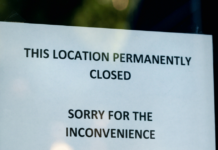Canada’s reputation as a country where major infrastructure projects die in their infancy due to overregulation will make it impossible to reach the Liberal government’s ambitious climate goals, a new report warns.
A study from the Business Council of Alberta (BCA) says that Canada needs to streamline regulations for major projects if it wants to meet its 2050 climate goals.
The report argues that Canada will require vast spending on infrastructure projects such as renewable energy, hydrogen technology and critical minerals mining in order to reduce emissions.
However, the report also warns that Canada is known internationally for long delays and uncertainties in the approval process, which discourages investors and hampers innovation.
“A lot of projects end up not coming forward at all because companies aren’t willing to go through the uncertainty of the process,” said BCA chief economist Mike Holden.
“So there are a lot of cases where investment passes Canada by, or it gets downscaled.”
The report goes on to call for a more efficient, predictable and transparent regulatory system which would also benefit other energy development.
Further collaboration with Indigenous communities, provinces and territories, and other stakeholders will also be necessary to speed up project approvals.
“Historically, we set up our systems to stop bad things from happening. Now we need to make good things happen and make them happen fast.”
Several major energy projects have been stalled and delayed in recent years, including the Trans Mountain Pipeline. Some of this is due to legislation like the Impact Assessment Act and the Liberal government has more plans to introduce further restraints on energy development.
The report claims that by improving its regulatory system, Canada can attract more investment, create more jobs, while achieving its climate targets.
The federal government has committed to reducing its emissions by 40% to 45% below 2005 levels by 2030, and achieving net-zero emissions by 2050. However, some experts have questioned whether Canada has a realistic way to meet these targets.












